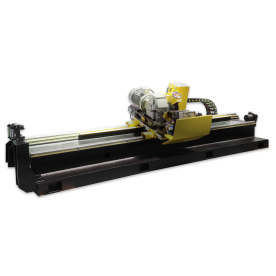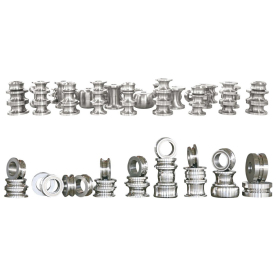Stainless steel pipes are essential components in various industries, including construction, automotive, oil and gas, pharmaceuticals, and food processing. The demand for high-quality stainless steel pipes continues to rise, prompting manufacturers to invest in state-of-the-art stainless steel pipe mill production lines. These production lines are designed to optimize efficiency, reduce waste, and improve product quality, thereby supporting the industry’s growth.
A stainless steel pipe mill production line encompasses a series of processes that transform raw stainless steel into finished pipes. These processes typically include cutting, bending, welding, polishing, and testing. The focus of modern production lines is not only on efficiency but also on achieving high precision and durability in the final products.
Key Components of Stainless Steel Pipe Mill Production Lines
1. **Raw Material Preparation**: The first step in the production line involves sourcing high-quality stainless steel sheets or coils. The material’s composition, such as its chromium, nickel, and molybdenum content, significantly impacts the pipe’s corrosion resistance and strength. Producers must ensure they use suitable grades depending on the intended application.
2. **Forming Process**: In this stage, the stainless steel sheets or coils are shaped into the desired form. Various techniques can be employed, including cold rolling, hot rolling, and extrusion. Cold rolling is predominant for producing thinner-walled pipes, while hot rolling is utilized for thicker materials. Advanced forming equipment, such as hydraulic presses, plays a vital role in maintaining accuracy throughout this process.
3. **Welding**: The welding process is critical when creating stainless steel pipes, especially those needing specific dimensions and thickness. Techniques like TIG (Tungsten Inert Gas) welding and laser welding are frequently used for their ability to produce strong, clean welds. Automation in welding has become increasingly important, as it enhances speeds and precision while minimizing human error.
4. **Heat Treatment**: Heat treatment processes improve the mechanical properties of stainless steel pipes. These processes ensure that the pipes can withstand the pressures and temperatures they encounter in various applications. Annealing is a common heat treatment method used to relieve internal stresses and enhance corrosion resistance.
5. **Finishing**: After welding and heat treatment, the pipes undergo surface finishing to achieve the desired aesthetic and functional qualities. Finishing processes include pickling, passivation, and polishing. These steps not only enhance the appearance of the pipes but also increase their resistance to corrosion and improve surface smoothness, which is vital for fluid transfer applications.

Exploring the Innovations and Advantages of Stainless Steel Pipe Mill Production Lines in Modern Industrial Manufacturing
6. **Testing and Quality Control**: Ensuring the integrity and reliability of stainless steel pipes is paramount in industrial applications. Therefore, stringent testing measures are implemented throughout the production process. Non-destructive testing methods, such as ultrasonic testing or radiographic testing, are commonly employed to detect flaws or inconsistencies. Additionally, every batch of completed pipes is subject to dimensional inspections to confirm conformity with industry standards.
Innovations in Production Technology
The rise of Industry 4.0 has significantly impacted the stainless steel pipe manufacturing sector. Automation and smart manufacturing technologies are enhancing the efficiency of pipe mill production lines. Incorporating sensors, advanced software, and real-time monitoring systems allows manufacturers to optimize their production processes by predicting and diagnosing potential issues before they escalate.

Exploring the Innovations and Advantages of Stainless Steel Pipe Mill Production Lines in Modern Industrial Manufacturing
Moreover, the integration of robotics in various stages of the production line streamlines operations, reduces labor costs, and improves workplace safety. Robots can handle repetitive tasks such as welding, packing, and material handling with high precision and consistency.

Exploring the Innovations and Advantages of Stainless Steel Pipe Mill Production Lines in Modern Industrial Manufacturing
Conclusion
The stainless steel pipe mill production line represents a critical infrastructure in modern industrial manufacturing. Through advancements in technology and automation, these production lines are capable of producing high-quality stainless steel pipes that meet the ever-increasing demands of various sectors. As industries continue to evolve, the importance of reliable, efficient, and innovative production methods becomes even more pronounced. Investing in cutting-edge stainless steel pipe mill production lines ensures that manufacturers remain competitive and capable of delivering top-notch products well into the future.All-in-one High Frequency Welder for Metal Processing



